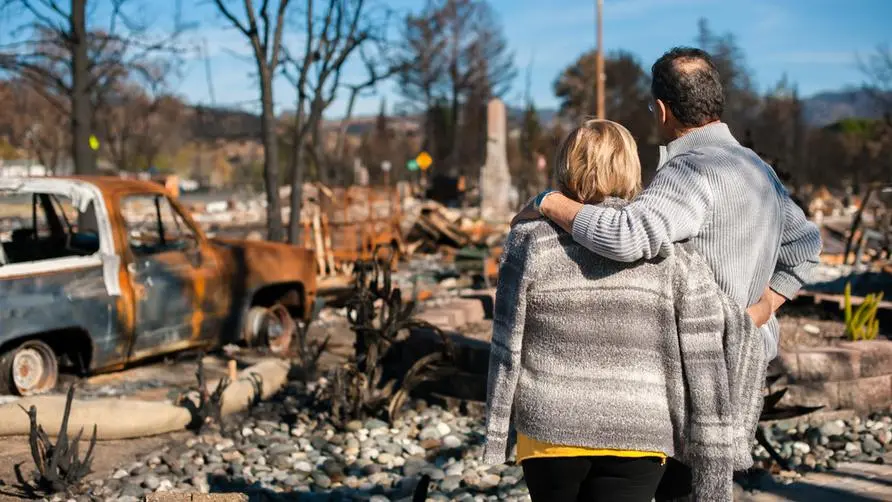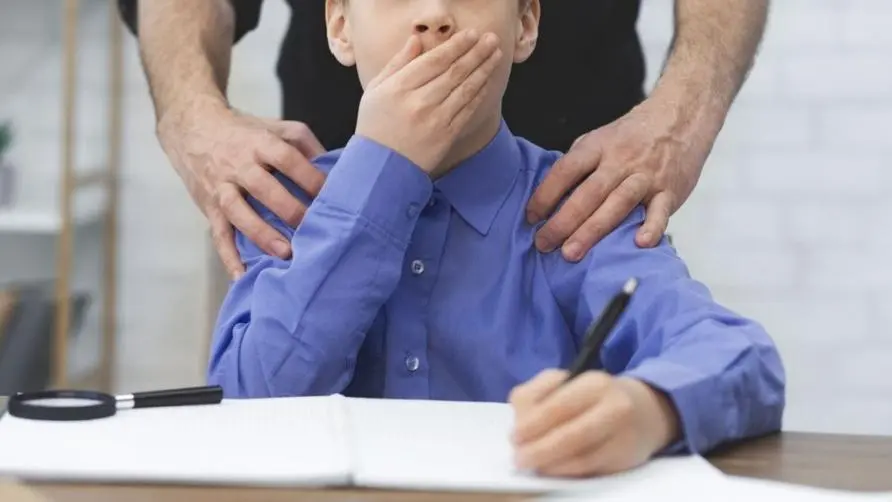Still frightened after the earthquake? Medical warning: "Two major symptoms" may be signs of acute stress syndrome

Affected by a natural or man-made disaster, although you are not injured, you still have anxious reactions in your heart? Dr. Qiu Yihang, director of the acute psychiatry ward of Wanfang Hospital, said in an exclusive interview that people who encounter major disasters may become very nervous, insomnia, and even suffer from acute stress syndrome (ASD), which lasts from 3 days to 1 month; and if the symptoms last for 1 If it is more than 1 month, you should suspect “post-traumatic stress disorder” (PTSD).
Can natural and man-made disasters cause mental illness? “Injury caused by touching scenes” may be a sign of stress syndrome
Dr. Qiu Yihang pointed out that the diagnosis and symptoms of acute stress syndrome are close to those of post-traumatic stress disorder. It is mainly caused by exposure to traumatic events, including real or threatening death, serious injury, sexual violence, such as serious injuries in accidents or natural disasters. Incidents such as being kidnapped, coerced, and subjected to violence may cause the onset of two types of psychological disorders. “For example, the victims of the 921 earthquake may also have PTSD or acute stress syndrome after the Huadong earthquake.”
Dr. Qiu Yihang explained that the “intrusive symptoms” of stress syndrome include waking up from nightmares, being easily frightened when hearing certain sounds, words or images, and having strong physical or psychological reactions. Patients are also prone to symptoms of escaping from trauma-related events. For example, patients who have been involved in a car accident become reluctant to drive or are afraid of riding in a car. They will be frightened when they hear the sound of braking. In domestic violence cases, they may hear a man yelling and think of themselves. After being raped, he wanted to leave the scene out of fear.
In addition, Dr. Qiu Yihang also said that patients may also have cognitive or emotional symptoms, such as persistent negative emotional states such as fear and anger, loss of interest in participating in activities, or “negative beliefs” about people and things around them. Such as excessive guilt and guilt, thinking that something happened because you are not good enough, alienation from others, difficulty feeling love, etc. In addition, symptoms such as hypervigilance, easily frightened, and sleep disturbances may also occur.
Is “catastrophic thinking” different from negative beliefs? Doctor: Delay in treatment may lead to depression and drug abuse
How are the above-mentioned negative emotions caused by acute stress or trauma different from the currently discussed “catastrophic thinking”? Dr. Qiu Yihang explained that negative beliefs caused by stress or trauma often lead to the belief that one should not be loved and that one is guilty; catastrophic thinking is a kind of negative “automatic thinking” and is not necessarily related to natural or man-made disasters. Catastrophic thinkers imagine the worst. For example, if they encounter turbulence on a plane, they think they are going to crash, or if they are unsuccessful in their job search, they think their life will be ruined, etc.
Whether it is negative beliefs caused by disasters or people who are accustomed to catastrophic thinking, how can they alleviate negative emotions and return to normal life? Dr. Qiu Yihang suggested that those with mild cases can be relieved through a good support system and the company of relatives and friends. They can also develop positive hobbies, such as exercising and listening to music, which are good choices. If the situation is serious and seriously affects your daily life, you should consider seeking medical treatment immediately and receiving professional assistance.
“If not treated in time, stress or anxiety will continue, and severe cases may be complicated by depression. Some patients use alcohol or sleeping pills to relax, which may even lead to alcohol and drug abuse!”
Are people with mental illness often accompanied by “insomnia”? How to treat “psychic trauma” caused by natural disasters?
Dr. Qiu Yihang emphasized that not only earthquakes, but also interpersonal problems in life, emotional problems, close relationships with family members, etc. may also induce negative beliefs, leading to insomnia, restlessness, and inability to concentrate. In particular, it has been clinically found that “sleep problems” are often related to mental illnesses.
Dr. Qiu Yihang said that if a patient suffers from mental illness combined with sleep problems, the assessment should be divided into two major levels:
First, identify the patient’s poor sleep habits. For example, whether you often stay up late, have an irregular schedule, reverse day and night, etc., or whether you have to use 3C products for a long time due to work content. In addition, drinking problems, caffeine intake habits, lack of exercise, etc. also need to be taken into consideration.
Second, identify the patient’s psychological illness. As mentioned earlier, mental illness can easily affect sleep, so it is necessary to first assess whether the patient is suffering from emotional distress.
If after evaluation, neither of the above are the main causes of insomnia, it may be “primary insomnia”. In addition to sleep hygiene education, medication intervention needs to be considered. However, taking the medication too frequently or for too long may lead to dependence, so you need to be extra cautious when using the medication.
Finally, Dr. Qiu Yihang urged that if the tension and anxiety cannot be relieved after an earthquake or other natural disaster, it is recommended to consult a psychiatrist in time and relieve the symptoms through individual or group psychotherapy. If it is combined with insomnia, inability to concentrate, etc., or even signs of depression, a “two-pronged approach” of medication must be considered. “Generally speaking, there is no fixed treatment model for mental illnesses caused by natural disasters, which vary from case to case. It is recommended that the public actively cooperate with doctors and discuss the treatment process so that they can return to normal life as soon as possible.”
Further reading:





